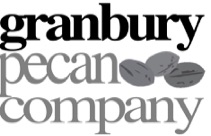CONFIDENTIAL All rights reserved by Granbury Pecan Company llc © 2021
There are a lot of things to keep in mind for pecan tree care in the spring. The spring is the time to consider a foliar zinc spray and nitrogen fertilizer application, make plans for watering or irrigation and be on the lookout for pecan nut casebearers, a small moth that destroys developing nutlets.
For homeowners that just want to keep their trees alive and looking attractive for the landscape, watering is the main consideration. For those that want to harvest a good crop in the fall, nutrition and pest control are necessary also.
Zinc helps with leaf expansion, and zinc deficient leaves are small and stunted. Leaves are the 'food factories' for the plant, and if stunted will not be able to do enough photosynthesis for a good crop. Pecan trees are not able to absorb zinc through the soil well, so a foliar spray is required for the tree to take it in. The first application should be in the spring during initial leaf expansion and can be repeated two more times when there is new growth in the canopy.
Nitrogen on the other hand is not well absorbed in the leaves and is most effective when applied to the ground and watered into the roots. Apply 1lb of ammonium sulfate (21-0-0) per inch of trunk diameter around the drip line of the tree and water in. Don't fertilize before a predicted heavy rain, as that would likely wash the fertilizer down the street with the stormwater runoff.
The pecan nut casebearer ('PNC') pest should be evaluated locally at each home or orchard. Trees with a heavy crop set may not need treatment because lessening the crop can increase nut size and quality if it starts out overloaded. But for trees with a lighter crop or with a heavy PNC population, treatment will help protect the harvest. Each grower should inspect their trees to get the best timing for treatment, but Granbury Pecan Company does provide an email announcement each spring to those interested in receiving a spray date recommendation. Contact Granbury Pecan Company to be on our email reminders for spray dates.
Of course irrigation is also key for a healthy tree and plentiful harvest. Pecan trees are not drought tolerant species and require steady irrigation when there is no rainfall. Plan to water the dripline weekly when there is no significant rainfall.
If you noticed last fall that you had pecans that looked full sized and good quality but were hollow and had holes, that is pecan weevil damage. The time to look out for and treat those is in August.



